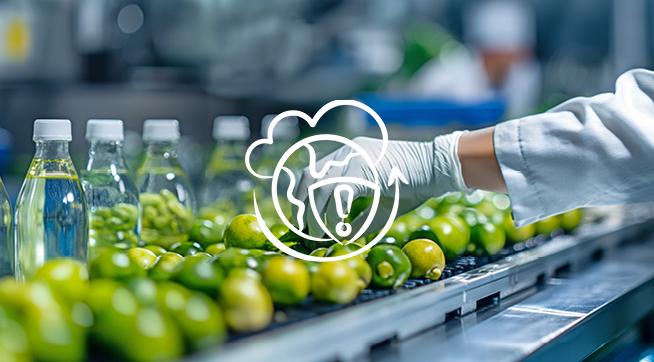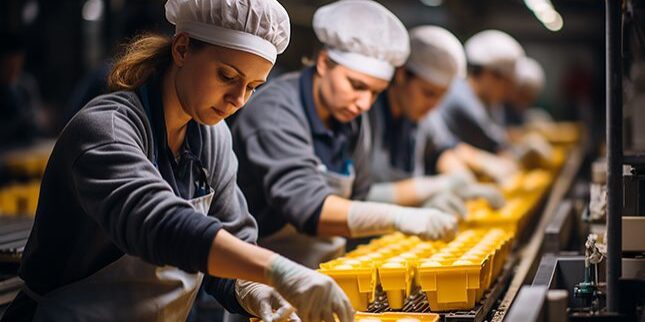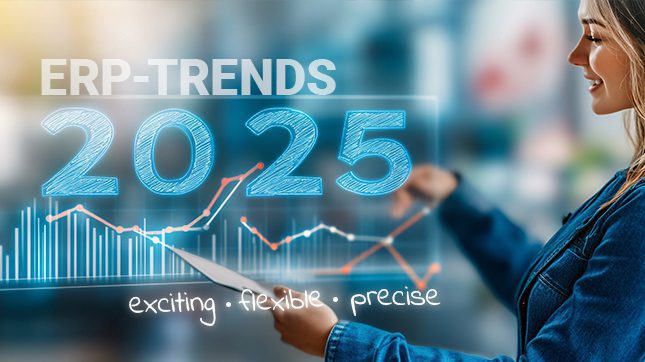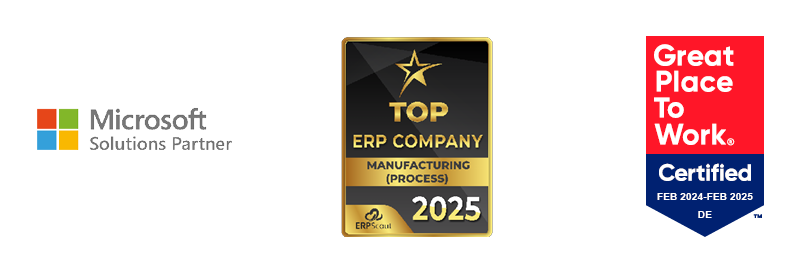Traceability of food
Traceability is a must for food producers. We explain which requirements apply, how you can comply with them and what role software plays.
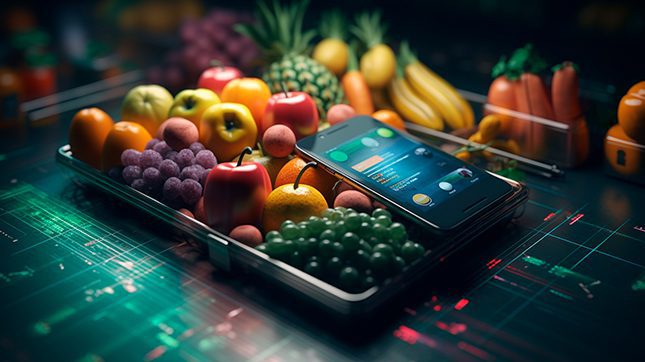
3. April 2025
Strict regulations, high quality standards and complex supply chains require transparency and reliable processes. You can achieve success with smart decisions - because the demands on the food industry are constantly growing.
The traceability of food and beverages is the key to complying with legal requirements, ensuring quality and reacting quickly when necessary. But what information needs to be documented? Which laws apply? And how does software help to optimize processes?
You can find the answers here.
What information must be documented for traceability?
Responsibility does not end with production - it begins with transparency. Precise documentation is required so that food manufacturers and retailers can always trace where a product comes from and which route it has taken. To do this, you need to record a lot of information.
You must enter this information:
Origin and production site: Where was the product manufactured?
Batch number/lot number: Unique identification of each product batch
Transportation information: Means of transportation used, route, storage conditions
Distribution channel: Wholesale, retail, end consumer
Processing data: Production steps, temperature controls, storage conditions
Labeling: product labels, barcodes, QR codes
Quality controls and recall procedures: Evidence of tests and measures
Supplier data: Raw materials, delivery quality, safety certificates, certificates of analysis
Consumer information: Contact details, instructions for the recall
This complete transparency not only ensures safety in the supply chain, but also strengthens the trust of trading partners and consumers. After all, a safe product is the basis for your sustainable market success.
No more recalls! Professional tips for the process industry.
Traceability is the key to safe production. If you don't guarantee it, you risk recalls that cause a loss of image, penalties and a slump in sales. Our tips reveal how you can avoid these risks. Read now!
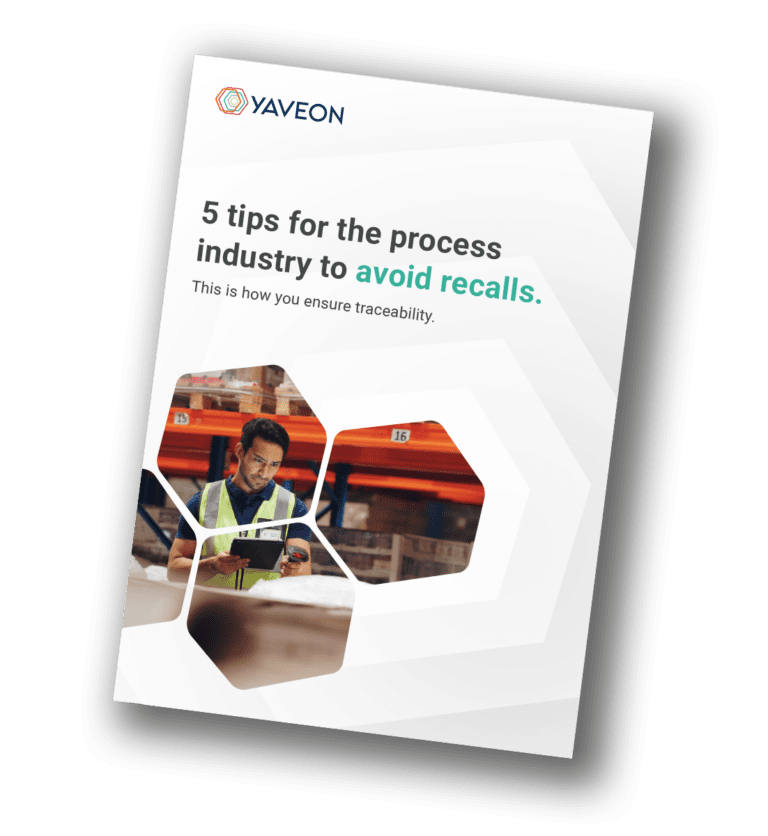
Legal regulations on the traceability of foodstuffs
From the start of production to the shelf: seamless documentation as a success factor
The traceability of food has been a legal requirement for all companies in the food chain since January 1, 2005. This is based on Regulation (EC) No. 178/2002, which was adopted on January 28, 2002 and stipulates throughout Europe that food must be traceable at all times. There are various responsibilities.
Who is responsible?
Food producers, retailers & logistics companies - they must ensure that traceability is guaranteed at all stages.
National authorities - they monitor compliance with the regulations and check documentation obligations.
The European Union - it sets the legal framework and coordinates measures where necessary.
These legal requirements apply:
- On request, companies must provide evidence of the suppliers and commercial customers with whom they work.
- The regulation recommends keeping additional product information such as quantities, batch numbers or lot numbers to hand.
- In order to be able to recall products quickly if necessary, companies must fully document where their goods come from and to whom they were delivered.
- Authorities monitor recalls and require affected companies to provide the relevant traceability data.
Compliance with these regulations is a challenge - especially in globalized supply chains. Companies that work with the right technology and strategy here not only minimize their risks, but also secure a decisive competitive advantage. An ERP system that meets the strict requirements of food and beverage manufacturers provides particularly efficient and targeted support.
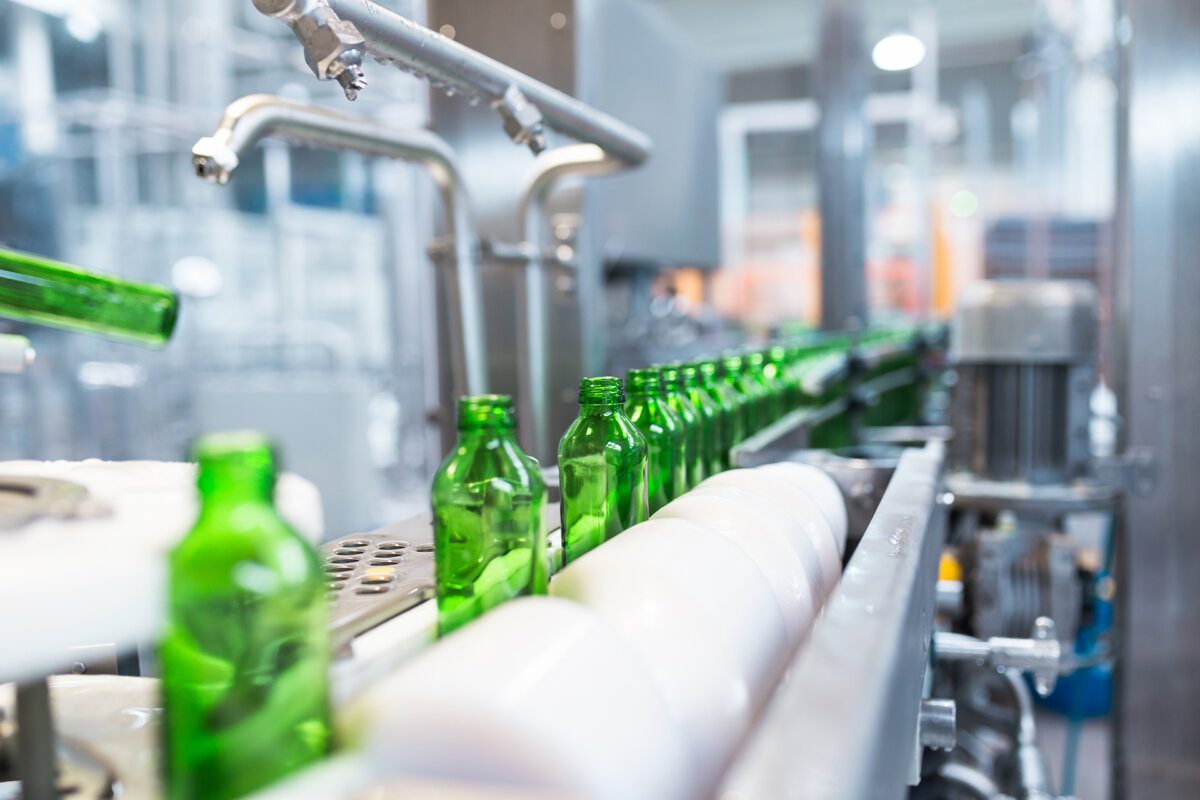
ERP industry solution from YAVEON: Digitally optimize traceability
Manual processes and scattered databases are no longer up to date. If you want to hold your own against the competition, you need a smart solution that combines transparency, efficiency and security. The ERP industry solution from YAVEON was developed specifically for the food and beverage industry and enables, among other things:
✔ Automated batch tracing for fast identification of products
✔ Central data management: all relevant traceability data easily accessible in one place
✔ Real-time transparency of goods flows and production processes
✔ Integrated quality controls and recall management
✔ Compliance with legal regulations through audit-proof documentation
Competitive advantage no. 1: Modern technology
In addition to ERP systems, there are supporting technologies such as barcodes, RFID or GPS tracking, but only a specialized ERP industry solution enables comprehensive, legally compliant and efficient traceability. After all, companies can only remain flexible and capable of acting if processes run reliably - whether in day-to-day business or in crisis situations.
Many challenges, one solution: ERP
It becomes clear: Traceability plays an enormously important role in the food industry. However, in addition to complying with legal requirements, companies in the food industry face numerous other challenges. These include the most important ones:
Complex, globalized supply chains make tracking more difficult.
High documentation requirements increase the administrative burden.
Data management & security must comply with legal data protection requirements.
Costs and resources required to implement an efficient system.
The good news: here too, a powerful ERP system with a specialized industry solution helps to overcome these challenges by automating processes, managing data centrally and creating transparency.
Conclusion: Smart technology for reliable and simple traceability
The traceability of food and beverages is much more than a regulatory obligation - it is a competitive advantage, a promise of quality and a question of responsibility. Thanks to seamless documentation, you can ensure safety throughout the entire supply chain. With the right software solution, you can comply with legal requirements. Thanks to efficient digital processes, you can also optimize your quality controls, cost management and responsiveness. The ideal basis for safe, high-quality and transparent production and the ability to withstand competition in the long term.
With the ERP industry solution from YAVEON, you can rely on proven technology that creates transparency, minimizes risks and increases efficiency.
Find out more about the ERP solution for the food and beverage industry.



